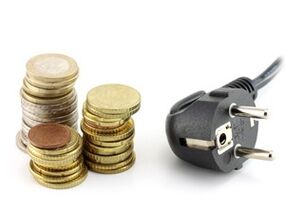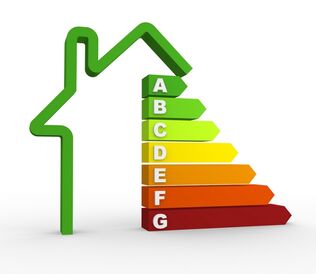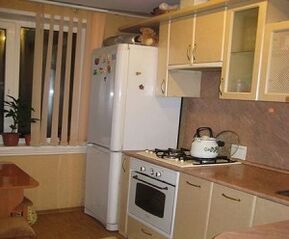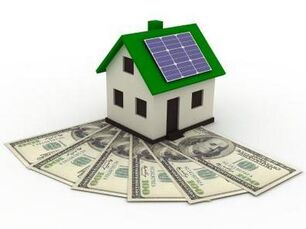
To understand how to save energy in an apartment, you need to prepare for an integrated approach. There is no such option to just press a button to get a minimum invoice. Living without light is not easy.
Importance of saving energy
Although energy sources are cheap, no one thought it was necessary to save energy. But since then, as payments have grown, there has been a growing interest among the population in ways to save on electricity and other sources. Villagers are worried about how to save electricity in a private home, while urban residents are looking for information on how to save electricity in an apartment.
The increase in tariffs is completely justified, because the planet's depleted energy resources are rapidly declining, and the cost of their production increases. Unfortunately, the salaries of ordinary residents do not show such a crazy increase, so there is no other way out but to look for effective ways to save electricity.
There is another reason for savings - large loads on transformer substations. Every year, more and more electrical appliances appear in people's homes. Of course, power lines and substations can not stand, need to be repaired or replaced with a stronger one.
Also, by saving electricity, emissions from processed products into the atmosphere and water sources are reduced. Resource-saving people make a modest contribution to the protection of rivers, lakes and forests and help protect the health of the nation.
Effective and legal savings methods
Reducing demand
How to reduce energy consumption without any equipment and additional investment? It's very simple. We need to think about how much light we really need and use the following tips from experienced innovators:
- Try to use less electricity. This does not mean going back to the primitive times in which life's activities took place only in daylight. You can try to do everything that requires bright lighting during the day and limit yourself to one lamp to illuminate the rest of the work in the evening.
- When researching the question of how to save light in an apartment, you should know that the degree of illumination depends on the cleanliness of lighting fixtures. If the lampshade in the kitchen is covered with a layer of "century-old" oil and dust, you should not expect a bright light from it. If the ceiling is clean, it penetrates perfectly into the light, so you can use a smaller light bulb.
- Windows also need to be washed faster, because this way the daylight will last a little longer for you, and you can turn on the electricity later.
- In chandeliers with several lamps, you can turn them on one or two, not at once. For table work, use a table lamp with low surface lighting.
- A very useful invention is obscurity. Allows you to adjust the brightness of each lamp.
- Replace standard bulbs for energy saving bulbs. Recently, many have begun to worry about the question: Do LED lamps save energy? Experts are convinced that the future belongs to LED lamps, because they emit less light and consume less energy.
- Turn off the lights when leaving the room. If you have children at home who find it very difficult to get used to such a simple saving method, it is certainly very difficult.

Use of multi-tariff meters
Electricity can vary at different times of the day. This is due to the high consumption during the day and the fact that power plants are practically empty at night. Therefore, you can save electricity with a meter that calculates the energy consumed during the day at the usual price, and allows you to pay 30% less for the night.
If you have appliances in the house that are used around the clock (refrigerator, electric heating, etc. ), a multi-tariff meter will help reduce electricity costs. Washing can begin at night and at the same time the power can be increased to turn off the heaters completely during the day.
Rational use of technology
Every home has devices that never go out of their sockets. However, not everyone knows that they draw electricity even in "sleep" mode. Each individual device has a very small amount of such support, but an impressive amount is achieved within a month. To avoid unnecessary waste, it is enough to remove the plugs of all devices from the sockets only in their "free time".
Note:Using old, low-quality wires and a large number of extension cables and various tees will also increase household electricity consumption.
Technical news

People who want to know how to intelligently lower the price of electricity in an apartment should evaluate each of the household appliances. After all, old refrigerators and TV models consume a lot of energy, twice as much as modern models. Gradually try to replace all obsolete devices with low-power models. Labels generally indicate the degree of savings, Class A is the most profitable.
Recently, more energy-efficient classes such as A +, A ++ have emerged.
Now smart devices on the market can independently calculate the amount of detergent or laundry detergent according to the weight of dishes or linens and control water consumption. Refrigerators can switch to super saving mode on the holidays of their owners.
Vacuum Cleaner
To prevent the vacuum cleaner from drawing more energy from the mains than it needs, it should be regularly and timely cleaned of accumulated dust, as consumption increases by 15-20% as it fills. Also, don't turn the vacuum cleaner on and off too often - it uses the most energy to perform these actions.
Refrigerator
Probably a million articles and thousands of videos have been written about the proper installation of the refrigerator, but our people continue to stubbornly put this unit next to the heater, stove and sunny side. However, in this case, the refrigerator heats up quickly from nearby heat sources and consumes more electricity. It is also recommended that you leave a small space between the refrigerator and the wall to provide the necessary air circulation.

It is also desirable that the room where the refrigerator is located is cool. Remember to remove the refrigerator from the ice and free it from accumulated ice if necessary, it simplifies the operation of the device and reduces the "energy appetite". Make sure the door is not damaged.
If you're thinking about how to reduce your energy costs, don't "swing" on the largest and most spacious model when buying a new refrigerator, if 2-3 people live in the house permanently. After all, such a "giant" consumes a lot of energy.
Electric hearth
An electric stove is a device that consumes a lot of energy. You can reduce energy costs by following these instructions:
- In the recipe, you should not preheat the oven if you do not need to preheat the oven as soon as it is placed in the oven.
- Switch off the oven 5-10 minutes before the end of the cooking time. There will be enough residual heat to cook.
- Boilers should always be covered with lids.
- When boiling eggs and vegetables, just add enough water to cover the dish.
- It is important to use good pans with a flat bottom. Ideal for electric ovens - pots and pans with a thick bottom.
- Use electric tea, not an oven, to boil water for tea or coffee, as it will use very little electricity during this time.
- Use a microwave or multi-burner, not an oven, for fast food.
Washing machine
Modern life is very difficult to imagine without a washing machine, and at the same time "eats" a lot of electricity - about 15% of total consumption. Use these tricks to make some money:
- Wash with quick and save modes.
- Do not wash 2-3 items at a time, but dig until the laundry is fully loaded. But you can't overload the car either.
- Use low temperature settings for normal washing.
Air conditioners
To prevent the air conditioner from consuming too much electricity, use it properly:
- Set the optimal temperature to cool the room so as not to freeze.
- Do not operate the air conditioner with windows or doors open.
- When buying an air conditioner, make sure you calculate how cool the room will be. Do not be too strong for a small room, because it is a loss of electricity.
- Be sure to clean the air conditioner fans, filters, and grilles to prevent them from running at high speeds.
Heaters
In autumn, winter and early spring, we often have to buy different heaters from our box. After all, the heat is often turned on and off. So we use energy-consuming heaters, although such heating is very expensive.
Even in a relatively hot season, be sure to insulate everything you can to reduce the need for heaters: windows, walls, floors. It is best to replace old windows with plastic windows. And if that's not possible, at least try to close all the cracks and micro-cracks in the frames and next to the glass. Up to 50% of the heat passes through them. Do the same manipulations with the front doors.
If the heating is already on and the batteries are still cold, you should call a wizard to check if there is water in it.
Use of solar energy

Solar energy is actively used in many countries with long warm climates. Some even managed to give up all other sources altogether. The technology is very attractive, but without government support, it often emerges as a major task for individual households because solar panels and other structural elements are expensive and have been around for many years.
It is advisable to read special literature and determine the necessary features of a solar station at the design stage. Many people try to do the whole structure on their own, but do not take into account all the nuances and difficulties, so they often fail.
Wind energy
In areas with high air mass activity, home wind generators can significantly reduce electricity costs and, if they have a special meter, can also save money on electricity generated. However, such devices and solar stations cost a lot of money and require installation by specialists.
The owners of such power plants miscalculate the strength of wind currents, which leads to the forced shutdown of expensive equipment.
Smart Home System
Probably everyone has seen a movie where the protagonist claps his hands or says a password, and then the lights come on or off, the curtains on the windows open, and the fireplace starts working. This is the "Smart Home" system.
To automate the operation of all devices in the house, special equipment and computer software are used to monitor the level of energy consumption. Sensors are installed in the house to read and determine the amount of electricity used in each room. The computer analyzes and makes suggestions to optimize energy use.
The system will not work by itself, it must be programmed for a specific house or apartment. However, when all the occupants of the house are scattered about their work in the morning, the system will turn off the air conditioner or kitchen lights, close the door or start washing.
Installation of motion sensors
Instead of buying a more expensive system, "Smart Home", you can go with "less blood" and install motion sensors in the area. After all, when we leave home, we often forget to turn off the lights or go to sleep with the lights on. However, if the rooms are equipped with motion sensors, they will turn off the lighting themselves.
These can be adjusted so that the light goes out 5-10 minutes after the person leaves the room. After all, children are constantly running back and forth, and adults can move very quickly at home.
Such a sensor is very useful only in the hallway, where light is needed to move to another room. You can live comfortably by placing a sensor so that the switch does not turn constantly or the light in the hallway does not turn on constantly. Now on sale are energy-saving lamps with built-in motion sensors.
Saving electricity is not very difficult, you just need to adjust it and agree with all members of the household. The main obstacle is ourselves and our beliefs. When we need to make money, immediately implement light accounts to keep them small.
























